 Moti Nissani, PhD
Moti Nissani, PhD
No Planet – No People

Combined flag of Anglosphere nations.

Invisible Government Series Table of Contents
Part IV of: Why does the Invisible Government Continue to Grow in Strength?
We must admit to ourselves that there are truly evil geniuses out there, and in most cases these characters have taken control of the power structure. — Mike Krieger
The Controllers
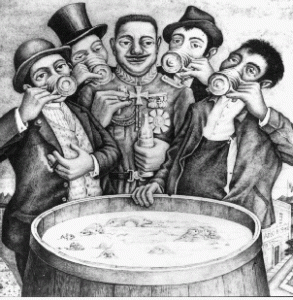
Juan O’Gorman, Enemies of the Mexican People
This article takes if for granted that the five major countries of the Anglosphere—Australia, Canada, New Zealand, the UK, and the US—are governed behind the scenes by a small group of people.
This group in turn shapes historical events, accounts for the near-uniformity of these five countries’ political developments, and enjoys partial or full control of most countries of the world. As far as we can guess, this group is comprised of a few banking families and their allies in the information, corporate, military, intelligence, and “religious” worlds. This group goes by such names as the deep state, invisible government, bankers, oligarchy, Bilderbergers, and Directors. In this posting, following Aldous Huxley, I shall refer to the members of this group as the Controllers.
What is it that the Controllers are after? Why aren’t they content with what they already have? The best guess is that they are just as sick as the fictional Eddorians:
While not essentially bloodthirsty—that is, not loving bloodshed for its own sweet sake—they were no more averse to blood-letting than they were in favor of it. Any amount of killing which would or which might advance an Eddorian toward his goal was commendable; useless slaughter was frowned upon, not because it was slaughter, but because it was useless—and hence inefficient. And, instead of the multiplicity of goals sought by the various entities of any race of Civilization, each and every Eddorian had only one. The same one: power. Power! P-O-W-E-R!! (Doc Smith, Interplanetary, 1948)

David Rockefeller
The Mush-for-Brains Misconception
Most independent analysts take a dim view of the Controllers’ intelligence. Mao Zedong, for instance, referred to the USA as a paper tiger.
In a recent speech—one of his most outspoken yet—President Putin said:
“I am under the impression that our counterparts [read: America’s Controllers] have mush [porridge] for brains. They really have no idea what is going on in Syria and what they are trying to achieve.”
In other words, the people controlling the USA are poor strategists: They are stupid, do not understand what’s going on, and don’t have clear goals.
In his wonderful China Rising, Jeff Brown writes:
“Baba Beijing and the Chinese think in terms of decades and centuries. Americans can’t think past the 24-hour propaganda spin and quarterly stock reports.”
Likewise, A. Raevsky (“Saker”) believes that the Western leadership is clueless, lacking political vision and professionalism. The American empire is weak and delusional. Echoing Khruschev’s famous reply to Mao, “yes, a paper tiger, but with nuclear teeth,” Raevsky feels that the Russians are only worried about the West because it “does not take a great deal of intelligence to trigger a nuclear war.”
Dmitri Orlov et al. likewise talk about “a string of foreign policy and military disasters such as Iraq, Afghanistan, Libya, Syria, Yemen and the Ukraine.”
A few more examples of this fundamental misperception
_________
Origins of the Mush-for-Brains Misconception
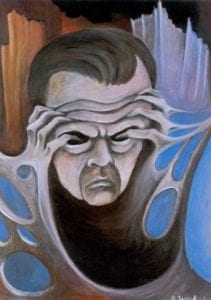
Alexander Zinoviev’s Self-Portrait: Thinking is Painful.
We shall shortly see that the Controllers have, over the past three centuries or so, made enormous strides: they have accumulated power and riches at a steady pace. This is nothing new. Taylor Caldwell, a novelist, saw this worrisome and astounding progress already in 1972:
“[The men of the Invisible Government] would continue to grow in strength, until they had the whole silly world, the whole credulous world, the whole ingenuous world, in their hands. Anyone who would challenge them, attempt to expose them, show them unconcealed and naked, would be murdered, laughed at, called mad, ignored, or denounced as a fantasy-weaver.”
Why would so many knowledgeable people ignore such a striking and obvious historical record? Let me offer two overlapping speculations.
One possibility involves a failure to appreciate the difference between wisdom and cleverness. The Controllers are indeed utterly clueless about the true meaning of our brief journey on earth. Anton Chekhov said:
“In reality, everything is beautiful in this world when one reflects: everything except what we think or do ourselves when we forget our human dignity and the higher aims of our existence.”
The Controllers are manifestly oblivious to these higher aims. Subscribers to the mush-for-brains view confuse this profound lack of wisdom with stupidity.
This confusion is aided in turn by the seeming contradiction between the Controllers’ avowed and real goals. If you take them at their word, they are indeed idiots. If, on the other hand, you judge the success of their actions by their hidden agenda, they are evil geniuses.
_________
Why is this Mush-for-Brains Controversy Important?
Sun Tzu famously said, “If you know yourself but not the enemy, for every victory gained you will also suffer a defeat.” To retain their independence, Russians, Chinese, and revolutionaries the world over must indeed know their enemy. And they certainly must know whether they are confronting imbeciles or Machiavellians.
_________
The Historical Record
The key to the proper assessment of the Controllers is their achievements. Are they steadily nearing the goal they set for themselves (enslaving humanity)? Who is gaining ground, the Controllers or the rest of us?
The historical record, as Caldwell so clearly saw, is unequivocally in favor of the evil geniuses view. One could fill an entire Kindle with examples, but here a few scattered fragments should be enough to drive the point home.
_________
The Domination of Europe
The vicious brilliance of the Controllers at times defies belief. Thanks to bribes, assassinations, the recent variation of the Gladio conspiracy, extensive wiretapping and blackmail of who’s who in Europe, economic warfare (e.g., the FIFA “scandal,” the VW “scandal”), and control of the banks, corporations, media, and intelligence services of Western and central Europe, this continent is now a submissive colony of the USA. In the words of one historian, “the level of abjection passes belief.”
Likewise, the level of strategic planning needed to bring this abjection about, to force once-independent countries like Germany and France to betray the interests of their people in the service of the Controllers’ agenda, also defies belief.
_________
Latin America
As we speak, the Controllers are brilliantly undermining the progressive governments of Latin America, once more turning this entire area into their back yard. Thus, “a new gang of vassal regimes has taken-over Latin America. The new rulers are strictly recruited as the protégés of US financial and banking institutions. Hence the financial press refers to them as the ‘new managers’ – of Wall Street.”
The most brilliant move involves Argentina and Brazil, countries who maintained friendly relations with Russia and China and pursued, now and then, independent policies that served the interests of their own people. In Brazil, especially,
“A phony political power grab by Congressional opportunists ousted elected President Dilma Rousseff. She was replaced by a Washington approved serial swindler and notorious bribe taker, Michel Temer.
“The new economic managers were predictably controlled by Wall Street, World Bank and IMF bankers. They rushed measures to slash wages, pensions and other social expenditures, to lower business taxes and privatize the most lucrative public enterprises in transport, infrastructure, landholdings , oil and scores of other activities.
“Even as the prostitute press lauded Brazil’s new managers’, prosecutors and judges arrested three newly appointed cabinet ministers for fraud and money laundering. ‘President’ Temer is next in line for prosecution for his role in the mega Petrobras oil contracts scandal for bribes and payola.
“The economic agenda by the new managers are not designed to attract new productive investments. Most inflows are short-term speculative ventures. Markets, especially, in commodities, show no upward growth, much to the chagrin of the free market technocrats. Industry and commerce are depressed as a result of the decline in consumer credit, employment and public spending induced by ‘the managers’ austerity policies.
“Even as the US and Europe embrace free market austerity, it evokes a continent wide revolt. Nevertheless Latin America’s wave of vassal regimes, remain deeply embedded in decimating the welfare state and pillaging public treasuries led by a narrow elite of bankers and serial swindlers.”
The remaining bastions of semi-independence—Venezuela, Ecuador, Bolivia, Nicaragua, and Cuba—are obviously being targeted now by the “witless” Controllers—while the Russians and Chinese are standing by, doing next to nothing.
China in particular, offers a puzzling example of shortsightedness. China is sitting on trillions of digital dollars that it is surely going to lose. Yet, it doesn’t occur to Xi and his colleagues to counter American aggression by creating their own version of the CIA, NGOs, and regime change outfits. It doesn’t even occur to them to give Venezuela an outright gift of at least $50,000,000,000, to help it ride the current American-engineered maneuvers and especially the masterstroke of manipulating the price of petrol downwards. China faces a far greater peril now than the Controllers-imposed opium addiction, and yet it nickel-and-dimes its few remaining potential allies.
_________
The Middle East
From its inception, America’s modeled itself after the vicious Roman Empire, not the far more civilized Democratic Athens or the Iroquois Confederation. Like the Americans, the Romans endlessly bragged about bringing peace to the world. The reality was diametrically opposite, as one eloquent victim explained: “To ravage, to slaughter, to usurp under false titles, they call empire; and where they make a desert, they call it peace.”
In the Middle East, one independent, secular, country after another has come under American control. The countries whose leaders sought an independent path suffered genocide, neo-colonialism, devastating wars, sectarian and ethnic conflicts where hardly any existed before, millions of refugees, fragmentation, environmental contamination, and as a consequence, higher cancer, mutation, and birth malformation rates.
Most independent analysts feel that America (the Controllers’ chief enforcer of military and economic conquests) is failing in the Middle East. These analysts seem to believe American politicians and presstitutes when they say that their main goal is to bring peace and democracy to Iraq, Syria, Libya, or Yemen (the Americans of course prefer to keep silent about the vicious dictatorships of their Wahhabi friends). These analysts, as we have seen, believe the politicians when they say that their hearts go out to the long-suffering Arabs, that they really care about the ongoing genocides of Christians and everyone else.
In a typical naïve outburst, for instance, a Georgetown University professor asks: “Why did the United States fail in its war on Iraq?”Eric Margolis calls the Iraq War “the worst disaster for the United States since Vietnam.” Paul Craig Roberts sees America’s policies in the Middle East as a failure.
These astute commentators see the American-created desert, the devastation, the hate that America incurred in the Middle East and elsewhere, and they conclude that these policies have been a failure. But the consistent pattern of “failures” suggests that these “failures” are not an unintended consequence caused by the pursuit of other, loftier, goals. Rather, the “failures,” future conflicts, and chaos themselves are the goal.
Sharmine Narwani describes the real goals of the Controllers:
“A 2006 State Department cable that bemoans Syrian President Bashar al-Assad’s strengthened position in Syria outlines actionable plans to sow discord within the state, with the goal of disrupting Syrian ties with Iran. The theme? ‘Exploiting’ all ‘vulnerabilities’ [and suggesting, among other things, playing] ‘on Sunni fears of Iranian influence.
“In 2013, influential former US Secretary of State Henry Kissinger openly advocated redrawn borders along sectarian, ethnic, tribal or national lines that will shrink the political/military reach of key Arab states and enable the west to reassert its rapidly-diminishing control over the region.”
As usual, Israeli strategists are more outspoken than their American counterparts. By 1982, they had already spelled out its goal of redrawing
“the Mideast into small warring cantons that would never again be able to threaten the Jewish state’s regional primacy. Lebanon’s total dissolution into five provinces serves as a precedent for the entire Arab world including Egypt, Syria, Iraq, and the Arabian Peninsula and is already following that track. The dissolution of Syria and Iraq later on into ethnically or religiously unique areas such as in Lebanon, is Israel’s primary target on the Eastern front in the long run, while the dissolution of the military power of those states serves as the primary short term target. Syria will fall apart, in accordance with its ethnic and religious structure, into several states such as in present day Lebanon, so that there will be a Shi’ite Alawi state along its coast, a Sunni state in the Aleppo area, another Sunni state in Damascus hostile to its northern neighbor, and the Druzes who will set up a state, maybe even in our Golan, and certainly in the Hauran and in northern Jordan.”
Thirty years later, that nightmare describes the world. Narawani warns:
“Arabs and Muslims need to start becoming keenly aware of this ‘small state’ third option, else they will fall into the dangerous trap of being distracted by detail while larger games carve up their nations and plunge them into perpetual conflict.”
Similarly, Russia, China, and humanitarians everywhere must become keenly aware that the Controllers are international grandmasters. Given the comparative naiveté of the people who oppose them, they almost always win.
_________
Former Members of the Warsaw Pact
The “featherheaded” Controllers now manage, impoverish, and run roughshod over many former countries that had been part of the Russian alliance. Who would have thought, just 30 years ago, that the Americans would one day find a peaceful way of placing nuclear delivery vehicles in countries like Romania and Poland? Who would have predicted that they would ever again place German soldiers 100 miles from St. Petersburg?
_________
Other Nations
The Controllers manage most of the world’s countries. Their armies conquered Japan, Germany, and Italy—and never left. They stole parts of Mexico and Colombia, and turned most of Latin America into subservient, violence-ridden, colonies. Again and again, they assassinated patriotic leaders and replaced them with quislings willing to enrich themselves by serving their foreign masters. No people is safe from their regime change operations (including the American people), and no country—even traditional safe haven Switzerland—is safe from their financial blackmail.
_________
The Controllers’ Brilliant War on their Own People
Sadly, owing in part to the 1990s manufactured collapse of the USSR, America’s Controllers have acquired vastly more power and riches, while gradually relegating the American Constitution to a meaningless piece of paper (see Part I of this series). They, assassinated or brutally tortured their real and imaginary opponents, stole so much from so many to the point that America’s 20 wealthiest people now own more wealth than the bottom half of the American population combined, neglected America’s infrastructure, elevated self-serving mendacity to an art form, conducted a phony war on drugs, used these very drugs and an utterly broken justice system to turn the USA into an incarceration nation in which jailers enjoy a de facto license to kill, destroyed American industry, and converted a once-rich country to the “most bankrupt nation in history.”
Take as just one example the so-called bailout of Western banks. In reality, that was the biggest transfers of money (and hence power) in history—from the vast majority of the peoples of these countries to the Controllers.
The criminals who planned the 2008 crisis, the criminals who are deliberately undermining the world’s economies, were paid handsomely for their misdeeds.
The money the bankers got, had Western governments chose to nationalize these banks instead of giving them the people’s money, could have worked miracles in improving the economic situation of the world’s people.
I must confess that I wouldn’t have thought it possible that anyone could perform such astounding hat tricks as “bailouts” and not have to contend with a revolution the following day. The Controllers had a deeper understanding of the power of propaganda and human nature.
_________
The 1990s Neo-Colonization of Russia and Its Aftermath: Four Trojan Horses
Throughout the 1980s, I studied the Russian-American standoff. And yet I failed to predict Russian naiveté, decency, inferiority complex, and the enormous damage inflicted on the Russian psyche by Stalin. I still find it hard to believe that the “dumb” Controllers were able, in the 1990s, to achieve the de facto occupation of Russia, sinking that once-powerful country into chaos, poverty, criminality, corruption, assassinations, organized crime activities, and social discord. Washington and its quislings were running—and deliberately ruining—the country.
Gratefully, the Americans eventually left—but only after leaving four Trojan horses behind.
_________
Trojan Horse #1: Western-Style “Democracy”
Instead of establishing real democracy, the controllers re-created Russia in their “democratic” image. Even at the best of times, such “democracies” do not represent the interests of ordinary people. Sooner or later, they are doomed to be taken over by psychopaths.
_________
Trojan Horse #2: Oligarchs and the Russian Economy
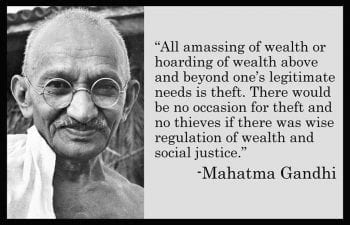
Another brilliant move on the part of the Controllers was the patronage and creation—from thin air—of the scourge of the Russian oligarchs. These “shysters basically stole Russia’s most valuable companies in the 90s, minting a small handful of mega-billionaires, while the rest of the country ate”—and is still eating—dirt. Very little has so far been done “to strip said shysters of their ill-gotten gains, and redistribute shares to the people.” As a result, unlike the much-maligned Soviet Union, Russia is plagued by vast income inequalities, poverty for the majority, inequality before the law, and unaffordable housing.
These oligarchs, “are still in full control of the Russian financial and banking sector, of all the key economic ministries and government positions, they control the Russian Central Bank and they are, by far, the single biggest threat to the rule of Putin and . . . to the Russian people and Russia as a whole.” Moreover, these oligarchs “connive to make Russia join the West as a junior partner.
Besides controlling the economy, the oligarchs corrupt everything they touch and provide a demoralizing proof that in Russia—as in the West—crime pays.
_________
Trojan Horse #3: Russia’s Central Bank and Constitution
It is impossible to exaggerate the gravity of the following question to the wealth and liberty of a nation: Is its central bank private or public?
Here are two quotes (many more are available here), both underscoring the import of this question.
“The issue which has swept down the centuries, and which will have to be fought sooner or later, is the people versus the banks.”—John Acton (1834-1902)
The second quote provided a dire warning to the American people from the very start. William Pitt, British Chancellor of the Exchequer, said of the inauguration of the first privately-owned central bank of the United States under Alexander Hamilton:
“Let the American people go into their debt-funding schemes and banking systems, and from that hour their boasted independence will be a mere phantom.”
This is exactly what the Controllers accomplished, taking control of Russia’s Central bank. From that point to the present day, Russia’s boasted independence has been a mere phantom.

Controllers bearing gifts: The Central Bank of Russia
The most meticulous documentation of this paradoxical reality known to me comes from historian Nikolay Starikov’s Rouble Nationalization (you can read a book review here or freely download the entire English translation of the book here):
“The structure of today’s world is a financial one par excellence. Today’s chains consist not of iron and shackles, but of figures, currencies and debts. That’s why the road to freedom for Russia, as strange as it may seem, lies in the financial sphere. Today we are being held back from the progress at our most painful point—our rouble… Our rouble, the Russian currency unit, is—to put it delicately—in a way, not quite ours. And this situation is the most serious obstacle to our country’s development. . . .
“Let us start with the simplest question—who issues roubles? This is easy—the Central Bank of Russia, also known as the Bank of Russia, has the monopoly on issuing the Russian national currency.
“‘Article 6. The Bank of Russia is authorized to file suits in courts in accordance with the legislation of the Russian Federation. The Bank of Russia is entitled to appeal to international courts, courts of foreign countries and courts of arbitration for protection of its rights. . . .
“The Russian economy does not have as much money as required for its proper operation but equal to the amount of dollars in the reserves of the Central Bank. The amount of roubles that can be issued depends of the amount of dollars Russia received for its oil and gas. That means that the whole Russian economy is artificially put in direct correlation with the export of natural resources. This is why a drop in oil prices causes a collapse of everything and everywhere. . . .
“An idea of a bank independent from the state was brought into the Soviet Union as a Trojan horse—through ‘advisors’, through those who had practical trainings at Columbia University, those who were recruited or simply betrayed their country . . .
“Among other things, it contains such amusing details as article 7: ‘Drafts of federal law and regulatory documents of the federal bodies of executive power concerning duties of the Bank of Russia and its performance shall be submitted to the Bank of Russia for approval.’ If you want to dismiss bankers through making amendments to the legislation—kindly submit the draft of the bill to them in advance. Otherwise, they might as well sue you for your legal mayhem in a court of Delaware . . .
“The second security level is the Constitution, as the ‘reformers’ shoved some words on the Central Bank and its status even into the Constitution. Article 75 (points 1 and 2) says that ‘the currency of the Russian Federation is the rouble’, and ‘issuing of money shall only be done by the Central Bank of the Russian Federation’, that ‘it performs independently from any other governing bodies.’ If you want to be surprised—have a look at Soviet Constitutions. Read the Constitution of the USA. You will find no mention of a bank that issues money independently anywhere, because such articles should not be a part of the main law of the country. What body issues the currency is a technical question, it is not fundamental for the country and its people. For the people it is not very significant, but it is a key issue for enslaving the country. That is why it was hastily dragged into the Constitution. And now this technical detail is there next to the fundamental rights of Russian citizens.”
Western control by proxy of Russian banking, finance, and the economy as a whole, has yet another sinister aspect. Prof. Michael Hudson and others underscore the fact that the USA has consistent, massive, balance of payment deficits with such countries as Russia, China, and Japan. Financialized and deindustrialized America buys real goods abroad and pays by running its printing press. Consequently, such countries accumulate the digital equivalents of billions or trillions of dollars.
They then use a good part of this money to buy U.S. treasury bonds. The net result of this convoluted, scarcely credible, process is straightforward: By financing the U.S. military and economy, these countries empower their own oppressors.
That is then one other legacy of the Controllers: They created a situation whereby Russia, while fighting for its very survival, finances its own military encirclement and the ongoing attacks on its economy and currency. Thanks to the powerful fifth column and alien constitution the Controllers bequeathed, Russia is “economically enslaved to the United States.”
Can witless people plan and execute such a coup?
_________
Trojan Horse #4: Information
Inside Russia too, the Controllers left behind another curious legacy: Hostile foreigners and their agents indirectly own some mainstream Russian media. And state-owned, independent, and private media are still afraid to tell the people of Russia and the world ugly truths about the West, still trying to curry favor with Washington and its Controllers, still often take the Controllers and their vassals at Langley and Washington at their word.
_________
Parting Words
The Controllers have been trying to subjugate Russia, its vast resources, and educated and creative people, for centuries. They tried direct or proxy wars, and so far failed. They tried nuclear brinkmanship, and they failed. They tried sleight of hand in the 1990s—and almost succeeded. They are resorting to blood-curdling brinkmanship now, and it remains to be seen whether this will lead to the conquest of Russia, its annihilation, or the destruction of humanity.

They are now resorting to military intimidation and economic warfare. They came close several times to turning Russia and China into vassal states, and they are now pursuing that goal, full steam.
They hope that one day soon they will have reached at long last their vision of the future: “a boot stamping on a human face—forever.”
The Controllers are engaged in a cross-generational undertaking. They are closest now to achieving their dream than any other empire in history has ever been. They could be the brightest bunch of psychopaths that ever lorded over humanity. If Russia, China, and revolutionaries everywhere wish to prevail, they must never underestimate their opponents. As well, they must level the intellectual playing field.

Moti Nissani
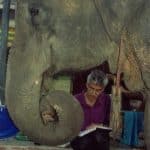
is an organic farmer (in Argentina), a former university professor (in the USA), a jack of many trades, and the compiler of “
A Revolutionary’s Toolkit.”
.

=SUBSCRIBE TODAY! NOTHING TO LOSE, EVERYTHING TO GAIN.=
free • safe • invaluable
If you appreciate our articles, do the right thing and let us know by subscribing. It’s free and it implies no obligation to you—ever. We just want to have a way to reach our most loyal readers on important occasions when their input is necessary. In return you get our email newsletter compiling the best of The Greanville Post several times a week.
[email-subscribers namefield=”YES” desc=”” group=”Public”]
[huge_it_share]
![]() Jeff Abbott is an independent journalist based in Guatemala
Jeff Abbott is an independent journalist based in Guatemala Nauseated by the
Nauseated by the











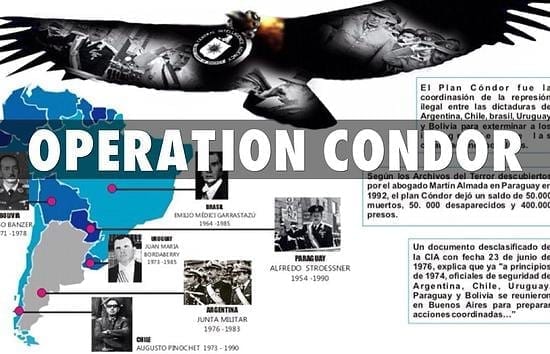

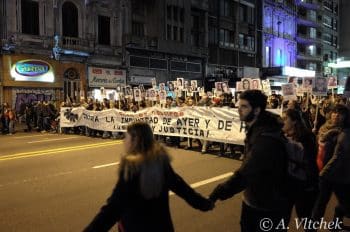
 Philosopher, novelist, filmmaker and investigative journalist. He covered wars and conflicts in dozens of countries. His latest books are: “
Philosopher, novelist, filmmaker and investigative journalist. He covered wars and conflicts in dozens of countries. His latest books are: “